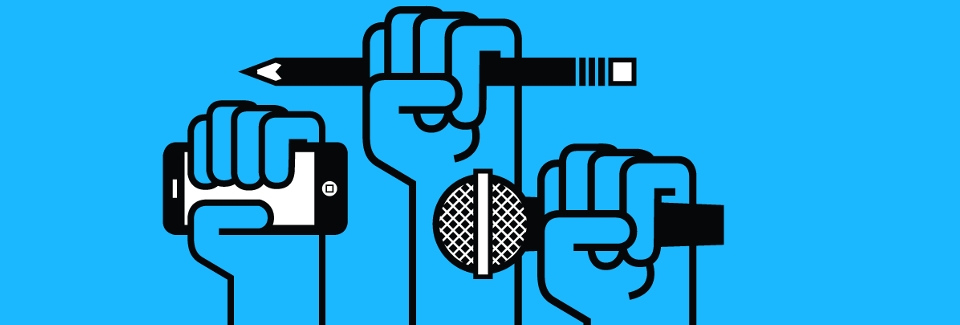On World Press Freedom Day, Nicaraguan journalists share the challenges they face
Washington D.C., May 4th, 2020. To commemorate World Press Freedom Day, the International Institute on Race, Equality and Human Rights (Race and Equality) spoke to four leaders in Nicaraguan journalism […]

Washington D.C., May 4th, 2020. To commemorate World Press Freedom Day, the International Institute on Race, Equality and Human Rights (Race and Equality) spoke to four leaders in Nicaraguan journalism and media about the state of independent journalism in their country, which has been immersed in a serious human rights crisis since 2018.
The journalists agreed that the independent press continues to withstand attacks by the authorities, including the murder of the journalist Ángel Gahona, the destruction or occupation of newsrooms, physical attacks, threats, intimidation, forced exile, censorship, theft of equipment and the imprisonment of journalists.
“The work of informing, investigating and communicating is under harassment and assault from the government,” says Patricia Orozco, director of the Onda Local radio program. Authorities raided the offices from which the program was produced in December 2018, when the National Assembly canceled the legal status of its partner organization. But despite difficult circumstances, journalists continue to report.
“Journalists and communicators carry out our work under high levels of pressure, risk and threats. Much of the media and many social communicators work from exile. The media that still continues to operate in Nicaragua, which is the case of Onda Local, does so under threats and serious financial limitations,” Orozco explains.
On the other hand, media outlets 100% Noticias and Confidencial, which were arbitrarily raided a year and a half ago, continue to be occupied by the Police. Lucía Pineda, head of press for 100% Noticias, who was previously imprisoned for six months in retaliation for her journalism, points out that if there are “police officers in newsrooms, where journalists must be present, that is proof that the freedom of press is under attack”.
Carlos Fernando Chamorro, director of Confidencial, agrees that “in Nicaragua, journalism is carried out under the risk of physical aggression, assault, and harassment by police and paramilitaries, in conditions of censorship.” He explains that throughout the two years of crisis, “the resistance of the press has rested on the courage of the reporters and their professional, ethical and political commitment, with adherence to the truth at any cost.”
Aníbal Toruño, director of Radio Darío, a station that was attacked and burned by para-state groups in April 2018, told Race and Equality that the station has been constrained ever since. “The harassment has not changed. The dictatorship has reinvented itself and now uses journalists’ desire to search for information to accuse them or to invent charges against them or to put pressure on the independent media and accuse them of destabilizing the government.”
The Violeta Barrios de Chamorro Foundation, which defends freedom of expression and access to public information in Nicaragua, has documented more than 2,000 attacks on press freedom in the last two years.
In the context of COVID-19
COVID-19 has posed another great challenge for the independent press, as both journalists and the general population have seen their access to truthful and transparent information denied.
“During the coronavirus pandemic, control over public information has been even more centralized,” says Carlos Fernando Chamorro. The Ministry of Health’s press conferences are closed to independent media and the international press, meaning that “only the official media and those belonging to the inner circle of the presidential family can attend.”
Patricia Orozco adds that in a context of widespread disinformation “many citizens report on what is happening in their localities themselves, which in many cases is taken up by independent media.”
For Lucía Pineda, Nicaragua’s Executive “minimizes the pandemic, its impact, its repercussions, and tries to disqualify the work of journalists…the regime takes the alerts and warnings made by health professionals in interviews with independent journalists as a “coup d’état” or as “fake news”.
Along the same lines, Aníbal Toruño highlights that journalists are “in a daily struggle to be able to provide the nation with truthful information, with credible sources, and in the fight to make up for the enormous battles taking place on social networks when they generate news that distorts what is happening in the country.”
Future prospects
Among the journalists interviewed by Race and Equality, despite the attacks on the press, there is a commitment to continue reporting and to do so with the highest standards. Confidencial and 100% Noticias, now broadcasting through social networks since their facilities are still occupied, are using methods familiar to most independent media: spreading their content on YouTube and Facebook to defy television censorship. Meanwhile, radio programs struggle day by day to continue producing quality content that can in turn be broadcast in other communities throughout the country.
Aníbal Toruño, who is currently undergoing quarantine at the Radio Darío offices together with his team, assures that they will continue “building truth and journalism, [even though] it is extremely difficult in the conditions we live in.”
As Lucía Pineda shares: “My commitment remains firm: reporting so that people can make their care decisions in the midst of this pandemic. To keep informing, because keeping silent would make me lose the fight to defend press freedom. The best fight for press freedom is to keep reporting.”
Statement
Race and Equality exhorts the State of Nicaragua to create an enabling environment for freedom of expression and of the press, including the restitution of property owned by Confidencial and 100% Noticias, security guarantees for the practice of independent journalism, and the necessary conditions for independent journalists to broadcast legitimate expressions of dissent, which are fundamental to life in a democracy, on television.
Cover photo: Radialistas

